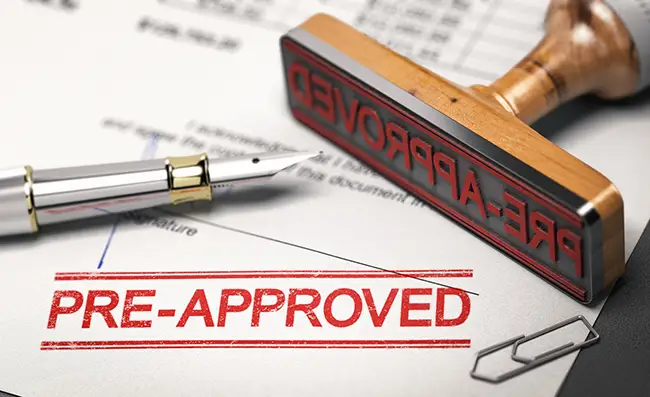Can I Shop for a Mortgage Without Hurting my Credit?
Published on September 22, 2023 | 5 Minute read

Melanie
Ortiz Reyes
Content Specialist
Hey there, future homeowner! So, you're ready to take that exciting step toward owning your dream home? That's awesome! But you might be wondering: How can you shop around for mortgages without hurting your credit score? Fear not because we're here to guide you through the process. So, what's the deal with credit scores, and why do they matter in the mortgage game?
Think of your credit score as your financial report card. This three-digit number encapsulates your financial habits, signaling to lenders how dependable you are when it comes to handling borrowed money. Just like in school, a higher score is better.
Credit scores typically hover from 300 to 850, with 300 being the lowest and 850 the highest attainable score. This spectrum serves as a gauge of your financial reliability, helping both you and lenders understand how likely you are to repay debts on time and in full. A credit score is, in essence, a numerical representation of your financial responsibility, and it plays a pivotal role in your ability to access various financial opportunities, including mortgages.
When you apply for a mortgage, lenders scrutinize your credit score to assess how much of a lending risk you pose. They seek assurance that you're a reliable borrower who is likely to make timely mortgage payments, reducing their chances of financial loss. Knowing your score before applying for a loan is imperative, as some loans have higher score requirements. If you apply without knowing your credit score, or the lender's requirements, you risk getting your application rejected.

Two Key Terms
Before we dive in, let's clear up some terms. "Prequalification" is a quick and informal assessment of what you might qualify for, and it doesn't affect your credit score. It's like dipping your toes into the mortgage waters without diving in headfirst. It's the initial step to get a ballpark figure of how much you could borrow. Think of it as window shopping for homes – no commitments and no impact on your credit. Prequalification is a low-pressure, commitment-free way to explore your options with an estimate as to how much you can afford to guide you. You're just testing the waters to see what's out there.
Now, let's take a look at the intriguing process known as "preapproval." If "prequalification" is the casual coffee date of mortgage shopping, think of "preapproval" as the in-depth interview stage. It's where things get a bit more serious, and yes, it does involve a hard credit check.
Loan Estimates, Rate Lock, and Timing
Loan estimates are documents that lenders provide to prospective borrowers, offering a comprehensive breakdown of the terms and costs associated with a mortgage. They are packed with valuable information, making them an indispensable tool for anyone looking to purchase a home.
A rate lock is your shield against potential interest rate hikes. You can lock in a specific interest rate for a certain period (usually 30 or 45 days) while you complete the application. When shopping for a mortgage, aim to concentrate your inquiries within a relatively short timeframe, often called the "rate shopping window." During this period, credit scoring models recognize that you're actively seeking the best mortgage offer and treat similar credit inquiries as a single inquiry. This clever approach reduces the potential impact on your credit score.
This is where getting prequalified and quickly learning which lenders fit your needs comes in handy. That way, you'll avoid wasting time during the 30-45-day window doing too much additional research for new lenders.
Here's why rate locks are essential: mortgage market interest rates can be as unpredictable as the weather. They can rise and fall due to various economic factors and market conditions. When you're in the midst of the mortgage application process, the last thing you want is for the interest rate to suddenly spike, potentially increasing your monthly payments and the overall cost of your loan.

Moving Forward With Confidence
Work closely with your chosen mortgage lender to complete the application. Provide all the necessary documents and information. This may include pay stubs, tax returns, bank statements, etc. Your lender needs this information to evaluate your creditworthiness and determine the mortgage amount you qualify for. Once your application is processed, you'll receive your preapproval letter. Remember, a preapproval can lower your score. The reason is that a preapproval requires a hard pull, which shows up as a hard credit inquiry on credit reports. However, the decrease is only temporary.
Keep in mind that credit reports are only valid for 120 days, so your lender will need a new copy if your closing falls outside that window. They can also pull credit mid-process if any discrepancies between the data on the report and your current information are found. So, staying on top of your credit is vital before submitting an application.
Shopping for mortgages doesn't have to be a stressful experience for your credit score. By starting with prequalification, requesting loan estimates, and being mindful of timing, you can navigate this exciting journey while keeping your credit score intact. Now go out there, find your dream home, and make it yours without a single worry about credit score bumps along the way!